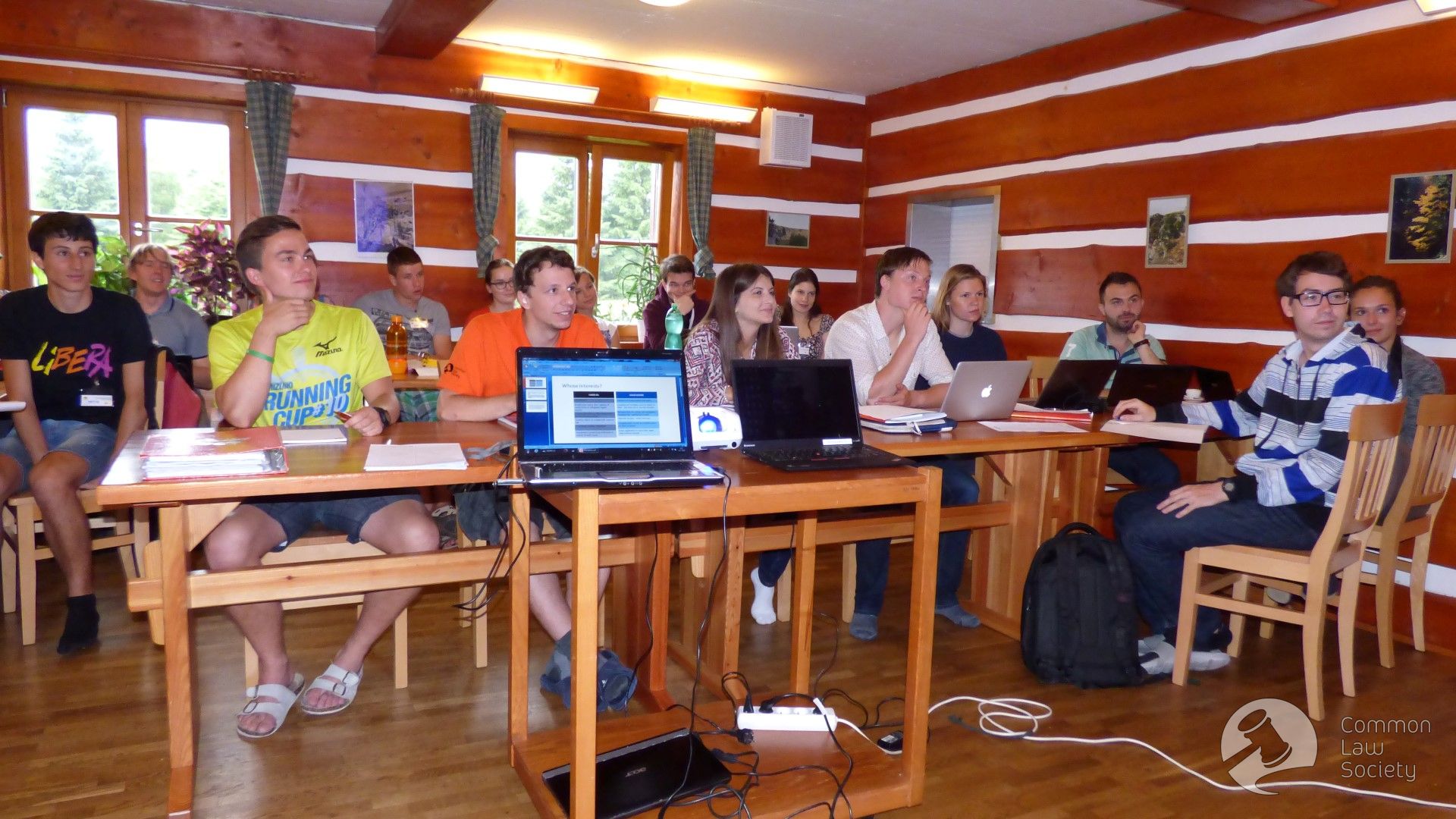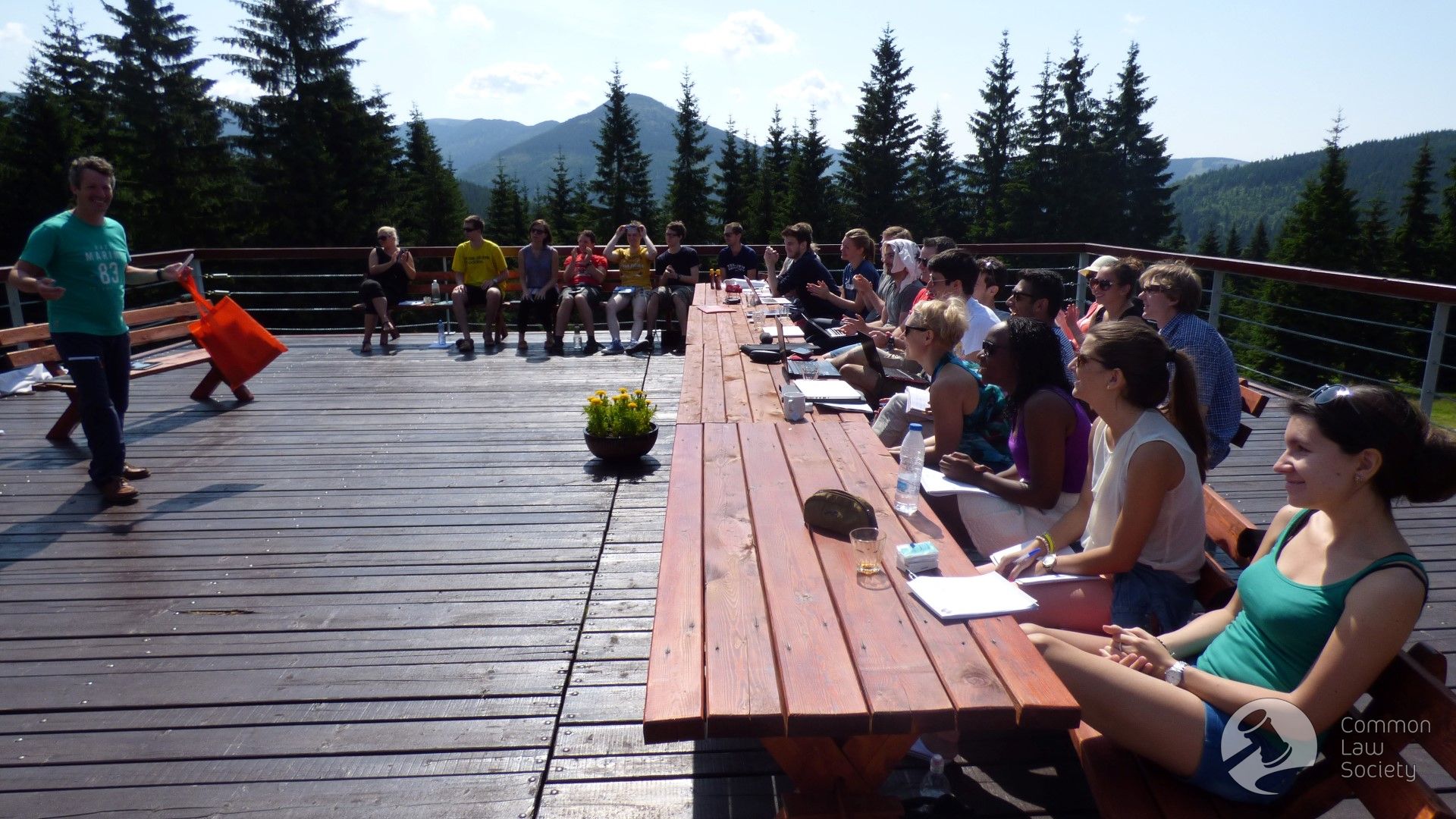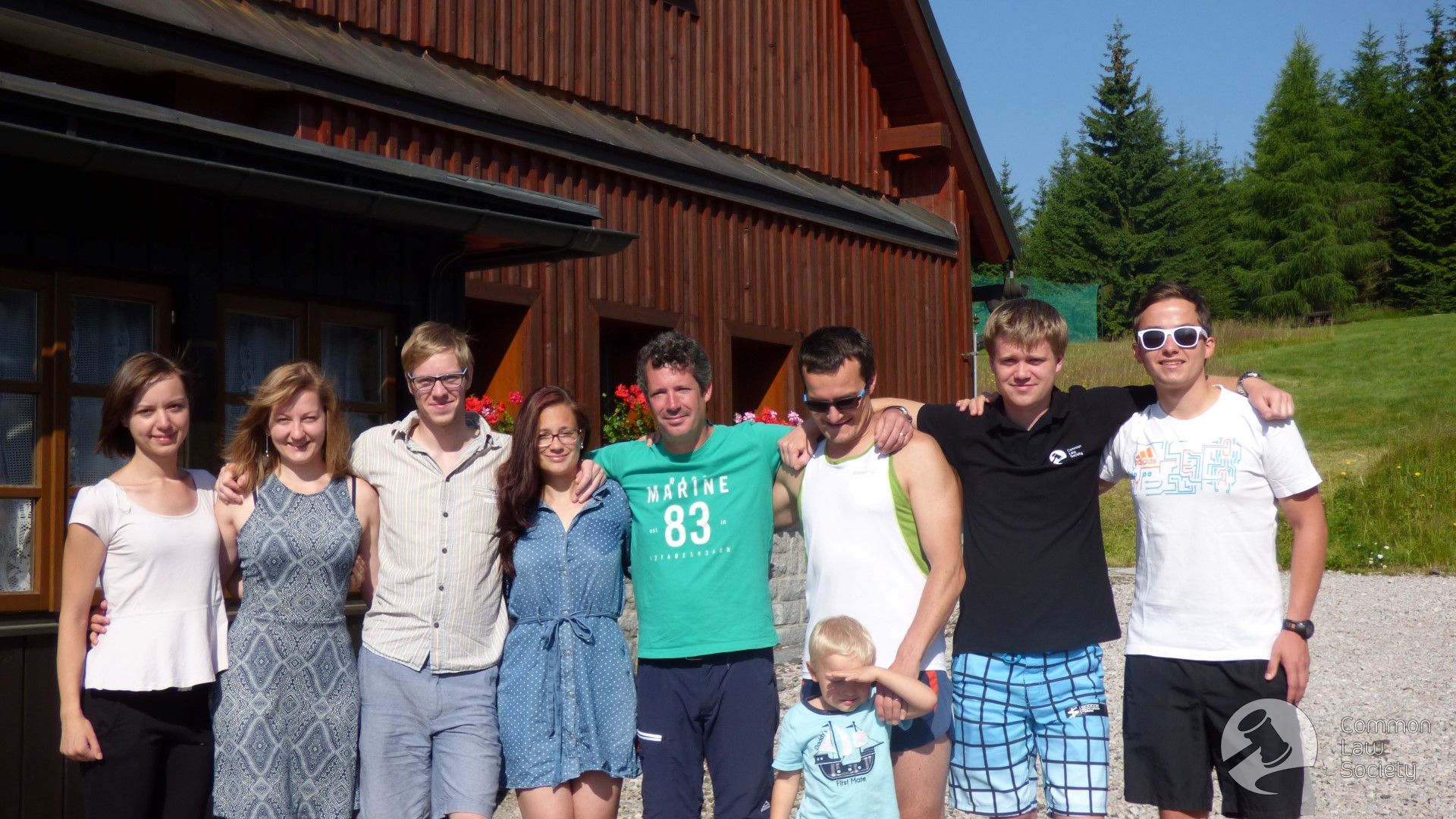European Convention on Human Rights and its Court: a practical introduction
We had already spent a couple of hours with our participants on Sunday, getting to know them, breaking the ice and popping open a couple of beer bottles..., but Monday was the real "first day" of our summer school. At 9am sharp, we all gathered in the lecture room (which is, in fact, a multi-purpose room that we use for meals, for lectures, for afternoon "reading time", as well as for evening entertainment), ready for the General Course to begin.
The main star of week 1 will be Eduardo Gill-Pedro: a PhD candidate at the University of Lund. Although specialising in the adjudication of fundamental rights in EU law, Eduardo will not guide us through the EU Charter, but rather through the European Convention on Human Rights. He knows the Convention very well from practice, since he worked as a legal advisor on Convention rights in the United Kingdom. Apart from this practical experience, he also holds an LLB from Essex and an LLM in EU law from Stockholm.

The Convention and the ECtHR – an overview
Eduardo opened his first class with a provocative question: "What is the point of human rights?" Each student took the floor for a minute or two, quickly introducing themselves and answering the question about the point of human rights. It seems that the backgrounds, as well as the opinions of the students are very diverse, which is promising. (Eduardo has said that this is a very different experience from teaching in human-rights-oriented programmes where students are usually "indoctrinated" by the same ideas, which makes the class discussions rather dull.) Another promising thing is that already in the first class, we looked at some case-law (Yukos Oil v Russia, Gasus Dosier v Holland, Barthold v Germany, or Gäfgen v Germany) as well as at some theoretical perspectives underlying human rights protection in democratic regimes. The main point of our discussion was the article of R. Bellamy, dealing with the democratic legitimacy and the role of the Convention and the ECtHR within national legal orders.
The State’s obligations under the ECHR – How are the rights ‘secured’?
In his second class, Eduardo introduced us to the character and the scope of the states’ obligations under the Convention. We first discussed how rights are secured, looking at Article 1 of the Convention, as well as the first and the fourth Protocol. Eduardo then introduced his main claim: that the obligations generally steam from the commitment to democracy, which can be found in the Preamble to he Convention. In his opinion, human rights and democracy are co-original, which makes human rights vital for the political community in democratic systems. In reaction to this thesis, one of the participants argued that Lichtenstein is a nation which fully respects human rights, while not being a democracy. Whom would you agree with?
We subsequently looked at the nature of human rights - should we perceive the Convention rules as legal norms or as moral values? In this context, we discussed the distinction between ‘a claim to moral correctness’ and ‘a claim to moral authority’. At the end of his lecture, Eduardo asked his students how they understood the notion of ‘absolute rights’. Once again, the students’ reactions were very diverse and we did not manage to agree on one single definition, nor on a hierarchy of the Convention rights. We however agreed about the distinction between the so-called ‘qualified rights’ (using the example of S and Marper v UK) and ‘absolute rights’ (using the example of Kröcher and Möller v Switzerland), but a difficult question is: can we ever apply the balancing test when absolute rights are at stake? In Kröcher, the Court indeed engaged in a balancing exercise, but the judges seem to have changed their opinion on this, as follows from Gäfgen v Germany.

The ECtHR’s approach – principles of interpretation for a ‘subsidiary’ court
Is the ECtHR more than just a court? Looking at the example of Othman (Abu Qatada) v UK, Eduardo raised the question whether the ECtHR could also be seen as an investigator in cases where the national democratic process is likely to be biased. That might be the case e.g. when the rights of immigrants (or other strongly condemned applicants) are at stake. Eduardo emphasised that the role of the Court in the protection of human rights is supposed to be subsidiary, the main burden laying on the states as the Contracting Parties. We looked at the case of Hatton v UK, where the Court was balancing the right to privacy of applicants living near the Heathrow Airport, and the conflicting public (namely economic) interest of expanding the grounds of the airport. We worked in groups, discussing these competing interests and trying to strike a fair balance between them. The ECtHR found against the applicants; but did it actually have sufficient information to decide this delicate balancing issue?
We subsequently looked at two (arguably) most important principles of the European human rights protection: the doctrine of ‘margin of appreciation’ and the doctrine of the Convention as ‘a living instrument’, both against the background of Gerorge Letsas’s article on the two concepts of ‘margin of appreciation’. In order to see the application of these theoretical notions, we exainedthe case of Dudgeon v UK and the ECJ case of Omega Spielhallen. Eduardo then asked us whether there are certain choices that are not permissible in a democratic society - what would you argue?
The EU in the ECtHR - a case study based discussion
In his final seminar, Eduardo guided a class discussion on the current problems of the relationship between the two systems of human rights protection: the ECJ and the ECtHR. What things do we have to consider when one state is a member of a number of international organisation that focus on human rights protection? How relevant is it whether a state agreed with a certain policy, or whether that policy was imposed on that state? And whether that state was (not) able to change the content / the understanding of the human rights in question? There are no clear answer to these questions, but some guidance has been given in cases such as Matthews v UK, Bosphorus v Ireland or Tarakhel v Switzerland, which we have discussed in a nice sunny setting on the terrace.

What memories do you have from the course? What was the most interesting argument you heard? What was your general opinion on Eduardo's course? Let us know!


CommentsTell us your opinion...